Meta and LG may be teaming up for the Quest Pro 2, but will it really run on WebOS? [UPDATE]
![Meta and LG may be teaming up for the Quest Pro 2, but will it really run on WebOS? [UPDATE]](https://m-cdn.phonearena.com/images/article/155701-wide-two_350/Meta-and-LG-may-be-teaming-up-for-the-Quest-Pro-2-but-will-it-really-run-on-WebOS-UPDATE.jpg?1709107317)
Update from 28 February, 2024:
As planned, the meeting between Meta and LG took place at the Twin Towers in Seoul and went on for about two hours. In that time, LG's CEO William Cho expressed keen interest in the Quest 3, Meta's smart glasses and the company's AI aspirations.
![Meta's CEO meeting with LG's CEO and president of home entertainment in South Korea. - Meta and LG may be teaming up for the Quest Pro 2, but will it really run on WebOS? [UPDATE]](https://m-cdn.phonearena.com/images/articles/411551-image/KakaoTalk-20240228-151006396.jpg)
Meta's CEO meeting with LG's CEO and president of home entertainment in South Korea.
Cho also commented on what LG "envisions" out of this collaboration, namely:
- Working on the next-generation of personal devices via XR technology
- Uncovering the potential of wearable devices to broaden user capabilities
The original story follows below:
Then again, the Quest 3 is superior to it while being more affordable than it. Given that this is the case, what can we expect from Meta in the future? A Quest 3 lite, the Quest 4 itself, or possibly something entirely different?

Okay, then: a Quest Pro 2. In all honesty, in order to reach that conclusion, we need to take into consideration a leak from September of 2023, when the rumor was brought up initially. So what has changed since then?
Well, Mark Zuckerberg himself is set to meet with Willian Cho — LG’s CEO — in South Korea on February 28. This means that in about two days, Zuck will be in LG’s HQ, discussing the details of this — seemingly imminently plausible — partnership.
From what has been shared in the latest report, the two are to discuss several main topics:
Now, there’s actually a lot to unpack here.
Getting AI on LG products is a no-brainer: AI is the future and LG is being wise in its efforts to secure a successful part in that future. How will that happen? Through Meta’s expertise in the realm. In return, LG — as a company with decades of experience in the realm of manufacturing — will help Meta with hardware development.
And that last part is a bit odd. As far as I’m aware, Meta hasn't participated openly in any sort of hardware collaborations for existing headsets or even prototypes. I mean, wasn't this why Meta acquired Oculus back in the day?
Well, this new report(translated source) suggests the latter.

The Quest Pro trailer gave it an enterprise vibe, but a lot of people use it for gaming regardless.
Okay, then: a Quest Pro 2. In all honesty, in order to reach that conclusion, we need to take into consideration a leak from September of 2023, when the rumor was brought up initially. So what has changed since then?
Well, Mark Zuckerberg himself is set to meet with Willian Cho — LG’s CEO — in South Korea on February 28. This means that in about two days, Zuck will be in LG’s HQ, discussing the details of this — seemingly imminently plausible — partnership.
From what has been shared in the latest report, the two are to discuss several main topics:
- How to get Meta’s AI tech on more LG products
- LG’s contribution to Meta’s hardware development efforts, including for that rumored Quest Pro sequel
- Implementing WebOS into future Meta headsets
Now, there’s actually a lot to unpack here.
Getting AI on LG products is a no-brainer: AI is the future and LG is being wise in its efforts to secure a successful part in that future. How will that happen? Through Meta’s expertise in the realm. In return, LG — as a company with decades of experience in the realm of manufacturing — will help Meta with hardware development.
Don't get me wrong: I'm sure that LG will have something to bring to the table. Yet it feels like Meta has managed just fine up until this point, so could this collaboration extend further than hardware alone? Oh, right: WebOS!
A WebOS revival, thanks to Meta and VR?
WebOS was awesome, but can it beat Android ten years later?
![Any of these ideas seem familiar? | Screenshot credit — Skatter Tech - Meta and LG may be teaming up for the Quest Pro 2, but will it really run on WebOS? [UPDATE]](https://m-cdn.phonearena.com/images/articles/411398-image/PalmScr.jpg)
Any of these ideas seem familiar? | Screenshot credit — Skatter Tech
That last point about WebOS is the true kicker of the report, if you ask me. WebOS was developed by Palm, Inc. in 2009. The story is incredibly fascinating, so I urge you to do more research on the topic, but here’s a very basic TL;DR:
- WebOS was meant to be a true competitor to Android and iOS
- The system was found on phones such as the Palm Pre
- WebOS with its Luna UI are actually to thank for a number of staple modern smartphone features, such as multitasking and gesture navigation
- Unfortunately, Palm couldn’t keep up with demand and after a few unsuccessful deals, the company was bought out by LG in 2010
- In 2018, LG released an open-source variant of WebOS, which still has a very active and dedicated community working on it
So how does all of that tie into Meta’s XR efforts?
Well, currently the Quest series of headsets are running on an Android-based operating system, but that isn’t all that beneficial to Meta. You see, Google is prohibiting the company from taking advantage of the Play Store, for one reason or another.
I mean, striving to get the Play Store on the Meta Quest platform is admirable. But if it isn’t working out, wouldn’t it be beneficial to switch camps to another, allegedly more stable, yet just as modular operating system, like WebOS?
Sure, that would mean a drastic change in environment and that every developer, who wants to keep selling their apps and games on the Quest Store, would have to do extra work in order to make that happen.
But hey: reports from back in the day stated that transferring apps from Android to WebOS took as little as three days, so if everyone gets a better experience after that, maybe it would be worth it.
Then again, maybe all of this will never happen. After all, this report is practically still a rumor. The meeting will take place in 48 hours or so and we can start theorizing only after we hear more on how it went to begin with.
Also, remember how Meta and Tencent had teamed up for a Quest Lite, but then Zuck quit the project because he didn’t like how it was going? Here’s hoping that history doesn’t repeat itself, but it’s not like we don’t have a precedent for this already.

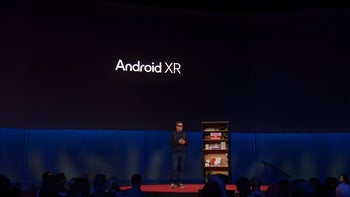
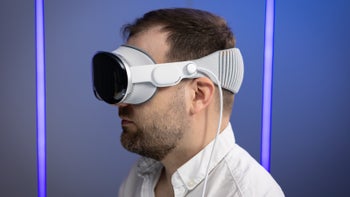

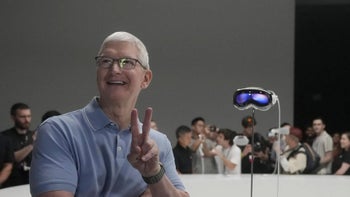
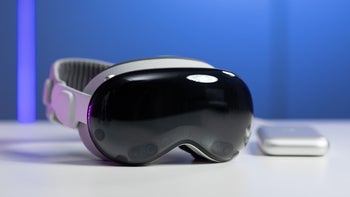
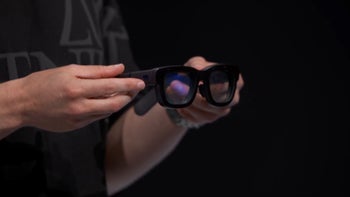
Things that are NOT allowed: